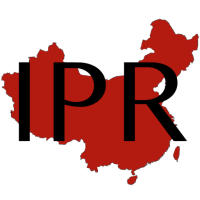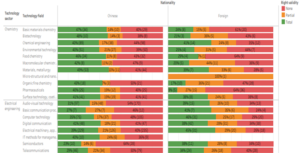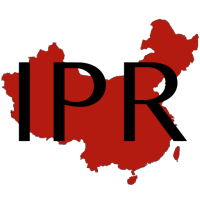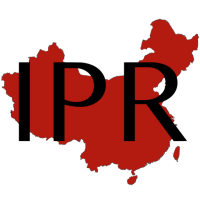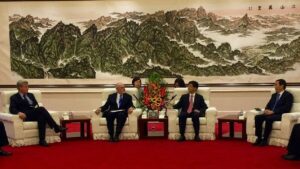
The NPC passed China’s new blocking statute, the Anti-Foreign Sanctions Law 中华人民共和国反外国制裁法 on June 10, 2021 (the “Law”). Xi Jinping signed the Law on the same day. Here is an unofficial translation. As with MofCOM’s Measures to Block the Improper Extraterritorial Application of Foreign Laws and Measures (Jan. 2021) (the “Blocking Measures”), the process and drafting were kept confidential, the drafts did not benefit from the usual public comment periods, and drafting, consideration and enactment of the Law occurred on an accelerated time schedule. The Law exemplifies how quickly China can legislate on high profile trade-related matters.
The Law applies to situations where foreign nations “violate international law and basic norms of international relations” or “employ discriminatory measures against China’s citizens or interfere with China’s internal affairs.” According to the Law, Chinese agencies now can impose countermeasures on “persons or organizations that directly or indirectly participate in the drafting, decision-making, or implementation” of discriminatory restrictive measures. The individuals and organizations will be placed on a “countermeasures list.”
The Law is the latest move by China to respond to a range of sanctions or restrictions imposed actions by other countries, including the United States and Europe. Possible targets of these measures could be US re-export control restrictions, “extra-territorial” measures such as Section 337 actions or antitrust actions addressing overseas activities, non-compliance with Chinese anti-suit injunctions, human-rights related sanctions or boycotts, and counter-sanctions against overseas officials or legislators that have been involved in the “drafting” or “decision-making” of restrictive measures. Overall, the language in the Law is more strident than the Blocking Measures.
The Law provides support for the delegation of power to enable lower-level agencies to implement sanctions measures. As the Law is vaguely worded, State Council agencies are likely to have considerable discretion in implementing it. The Law also provides legal support for pre-existing measures, including MofCOM’s unreliable entities list (May 2019) and the Blocking Measures.
Of particular concern to multinational companies, the Law also covers spouses and immediate family members as well as officers of listed sanctioned entities. Perhaps this is a response to how China perceives the detention of Meng Wanzhou, the daughter of Huawei’s founder, in Canada. Individuals and companies may now risk capture in the crossfire of different countries’ sanctions and blocking statutes. The potential risks to affected individuals and organizations in China include: visa cancellation or deportation; sealing up, seizing, and blocking movable property, immovable property and other every other type of property within China; prohibiting or restricting relevant transactions, cooperation and other activities with organizations and individuals within China’s territory; and “other necessary measures.” The references to “other type of property” might include intellectual property. The Law also additionally provides for a judicial remedy for third parties who are injured by violations of the Law. This Law thereby codifies part of the MofCOM Blocking Measures and eliminates the legal uncertainties of imposing a judicial remedy through low-ranking legislation. I had discussed these infirmities in my earlier blog on the Blocking Measures.
Ironically, the Law was enacted one day after a White House Executive Order of June 9, 2021 rolling back sanctions that had been imposed on TikTok and WeChat where the Biden Administrative committed to “evaluate … threats through rigorous, evidence-based analysis.” In addition, the White House published an important report on maintaining supply chain stability this month, and the Senate passed the Endless Frontier Act to boost American technological competitiveness. In a separate matter, Ericsson and Samsung settled their global SEP disputes on May 7, 2021, bringing to an end a cycle of US-Chinese antisuit/anti-interference injunctions. These developments suggest that the Biden Administration, Congress and companies are also seeking practical, fact-based approaches to technology competition with China. By enacting the new Law, China has not taken any direct steps to confront the United States. However, China is enriching its legal toolbox to address existing sanctions or any new foreign escalation of sanctions The long-term implications of these developments are highly uncertain.
Categories: ASI, Blocking Statute, Extraterritorial Jurisdiction, Measures to Block the Improper Extraterritorial Application of Foreign Laws and Measures, MofCOM, Sanctions, TikTok, Trade War Legislation, Wechat, WeChat, 中华人民共和国反外国制裁法
Source: http://chinaipr.com/2021/06/11/chinas-new-blocking-statute-comes-into-effect/
- 2019
- 2021
- 7
- 9
- activities
- American
- analysis
- antitrust
- Application
- biden
- Canada
- China
- chinese
- Companies
- competition
- Congress
- Council
- countries
- day
- DID
- Ericsson
- Europe
- family
- founder
- Free
- Global
- here
- High
- House
- How
- HTTPS
- Including
- intellectual property
- International
- involved
- IT
- language
- latest
- Law
- Laws
- Legal
- Legislation
- List
- Matters
- Members
- move
- Other
- power
- Profile
- property
- public
- range
- report
- response
- Risk
- Samsung
- Sanctions
- Senate
- Share
- State
- States
- supply
- supply chain
- support
- Technology
- third parties
- threats
- tiktok
- time
- Transactions
- United
- United States
- us
- visa
- war
- White House
- WHO
- within
- WordPress
- xi jinping

